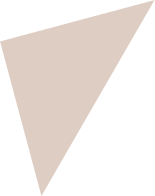God's Word In Every Language!
We want everyone to hear God speak to them as they engage with the Bible in their own language. Our Vision is God’s Word transforming lives in every language in this generation.


We want everyone to hear God speak to them as they engage with the Bible in their own language. Our Vision is God’s Word transforming lives in every language in this generation.
Farsi, also known as Persian Language, is the most widely spoken member of the Iranian branch of the Indo-Iranian languages, a subfamily of the Indo-European languages.
Azeri is a Turkic language spoken primarily by the Azerbaijani people who live mainly in the Republic of Azerbaijan and in the Azerbaijan region of Iran, where the South Azerbaijani variety is spoken.
Western Mazandarani is an Iranian language of the North-western branch, spoken by Mazandarani people. As a member of the North-western branch. The Western Mazandarani languages share certain typological features with Caucasian languages.
Eastern Mazandarani is an Iranian language of the North-western branch, spoken by Eastern Mazandarani people. Mazanderani language is closely related to Gilaki and the two languages have similar vocabularies.
Western Gilaki is an Iranian language of the Northwestern branch, spoken in Iran’s Gilan Province. Gilaki has the same consonants as Persian, but different vowels.
Eastern Gilaki is also spoken in the cityof Ramsar, Tonekabon and even up to Chalous and the surrounding areas. Although it is slightly mixed with Mazandaran in these areas, it is still considered a Gilaki dialect.
Qashqayi is an Oghuz Turkic language spoken by the Qashqai people, an ethnic group living mainly in the provinces of Khuzestan, Kohgiluyeh and Boyer-Ahmad, Chaharmahal, Bakhtiari, Bushehr and southern Isfahan.
Northern Luri is a Southwestern Iranian language continuum spoken by the Lur people, an Iranian people native to Western Asia. This language is spoken mainly by the Bakhtiari and Southern Lurs in Iran.
Southern Luri is Spolen in some regions in Southwest of Iran including Kohgiluyeh and Boyer-Ahmad, Sotheastern parts of Khuzestan. Northwestern parts of Fars and Western parts of Bushehr Province
Central Laki is a vernacular that consists of two dialects; Pish-e Kuh Laki and Posht-e Kuh Laki. Laki is considered a Kurdish dialect, by most linguists, while others argue that Laki is closely related to Kurdish.
Northern Talysh, is a North-western Iranian language spoken in the northern regions of the Iranian provinces of Gilan, Ardabil and the southern regions of the Republic of Azerbaijan. Also it was known as Talish–i Gushtasbi.
Central Talysh distinguishes itself from Northern and Southern Talysh not only geographically but culturally and linguistically as well. Central Talyshi dialect: Gilan Province, Asalem-Hashtpar area along Caspian littoral.
Shikaki Kurdish also termed Northern Kurdish, is the northern dialect of the Kurdish languages, spoken predominantly in south-east Turkey, northwest and northeast Iran. It is the most widely spoken form of Kurdish People.
BANDARI, the dialect spoken by the native population of BandarʿAbbās, administrative center of Hormozgān province, and of its environs. Bandari belongs to the southwestern group of the Iranian languages.
Lerd Tati is a Northwestern Iranian language which is closely related to the Talysh, Gilaki and Mazandarani languages spoken by the Tat people of Iran.Tati People Mainly live in the provinces of Qazvin and Zanjan.
Dezfuli constitute a South-western Iranian language more specifically a Persian dialect spoken in Dezful. The sedentary Iranian communities of Ḵūzestān, seem to be located in a band along the foothills of the Zagros.
khuzestani Arabs are an Arab community in Iran which resides mostly in the resource rich Khuzestan Province in south-western Iran, bordering Iraq. This area is known as Ahwaz by the capital of Khuzestan is Ahvaz.
Sistani, also known as Zaboli, is a dialect continuum of the Persian language spoken by Sistani people in Iran and Afghanistan. It is part of the Southwestern Iranian branch of the Indo-Iranian group of Indo-European languages.
Korpu Company is at the cutting edge of bringing the Bible to people who have never had God’s Word in a language they understand.
Copyright © 2020 KÖRPÜ Company | All Rights Reserved.